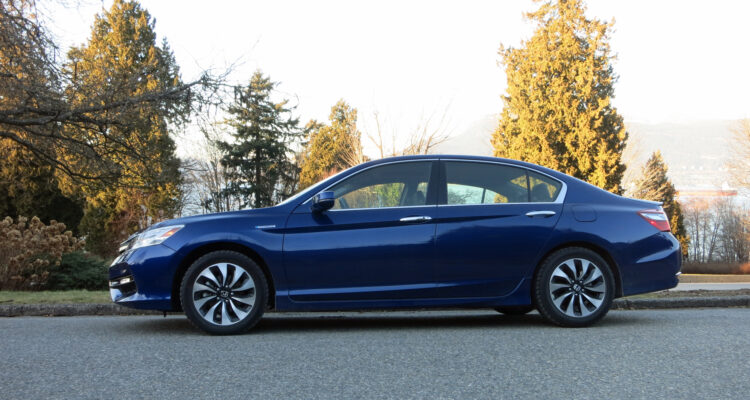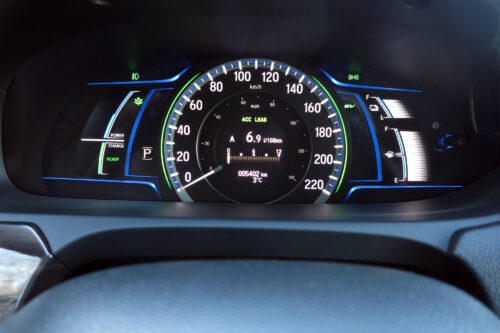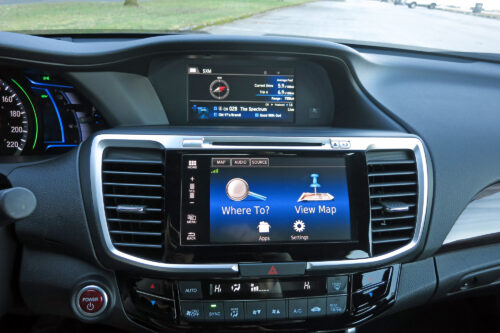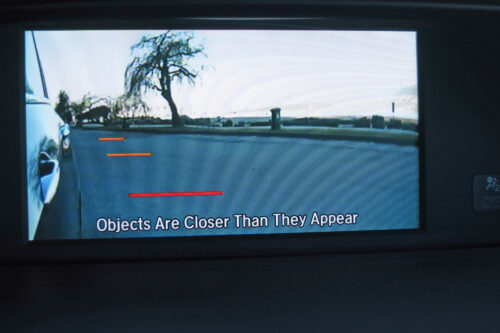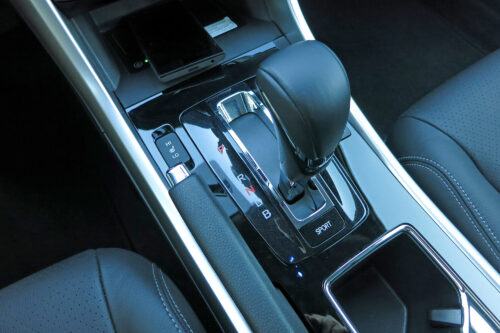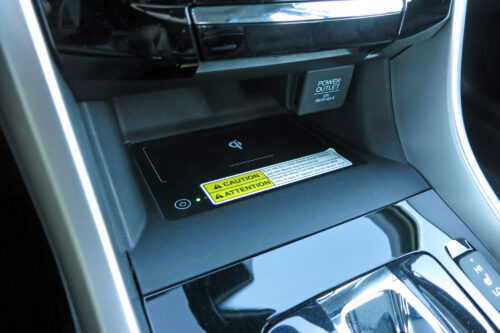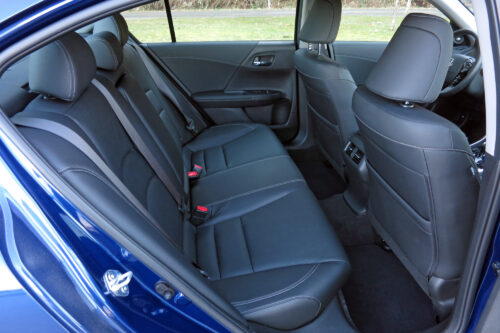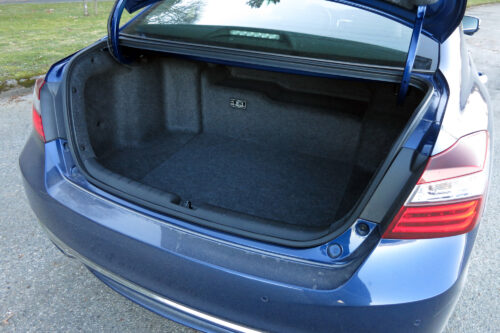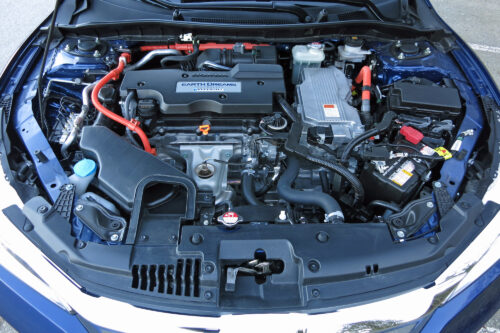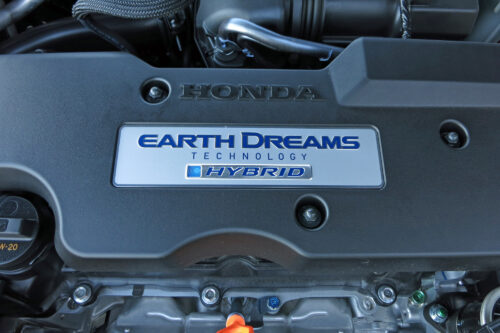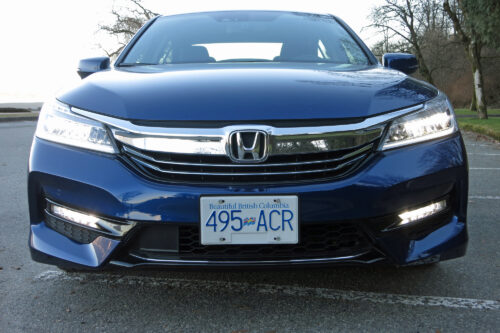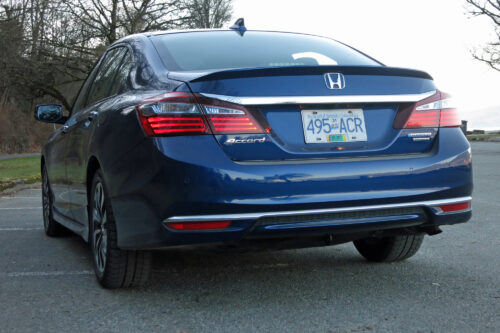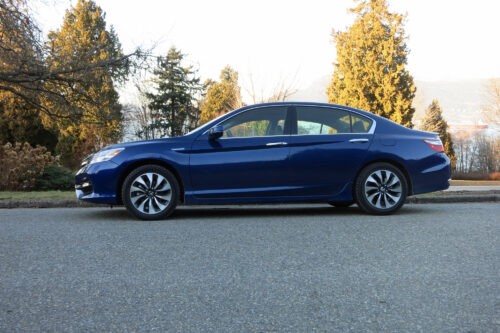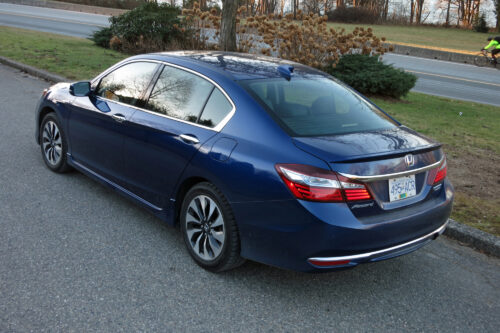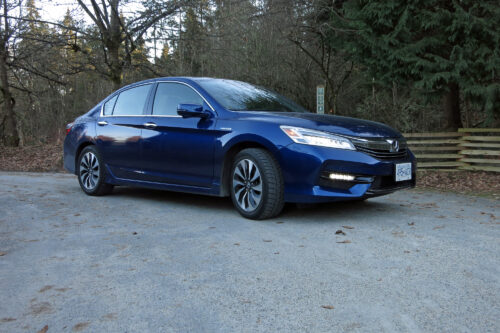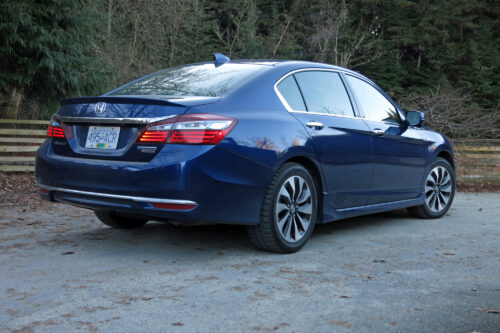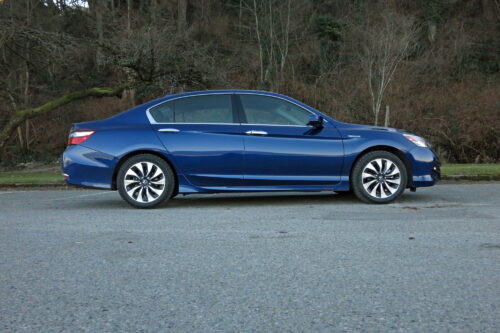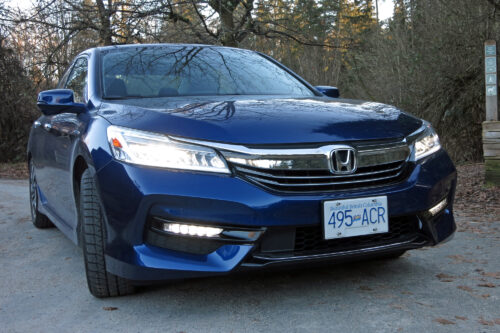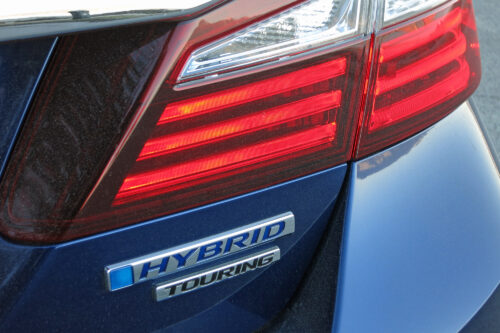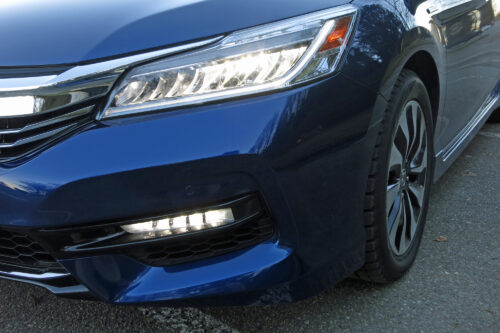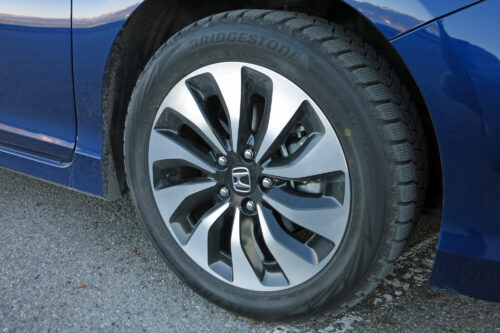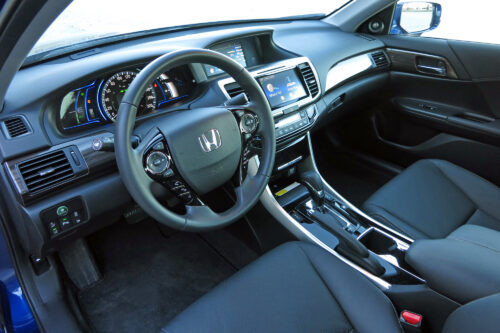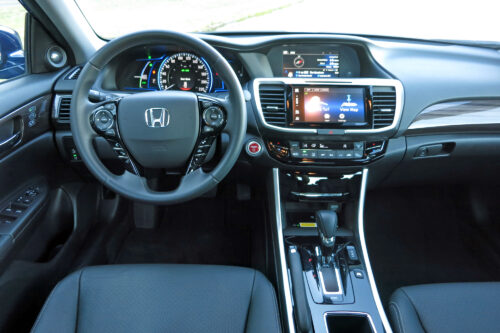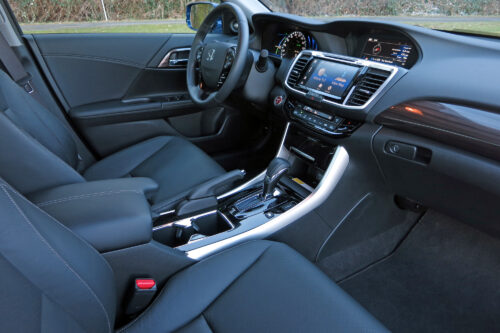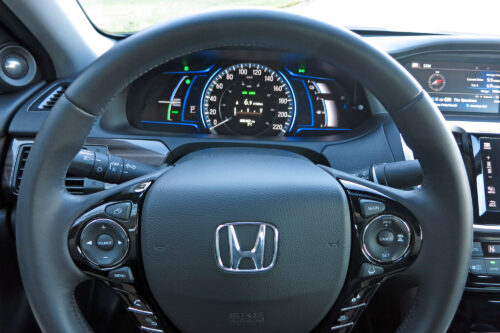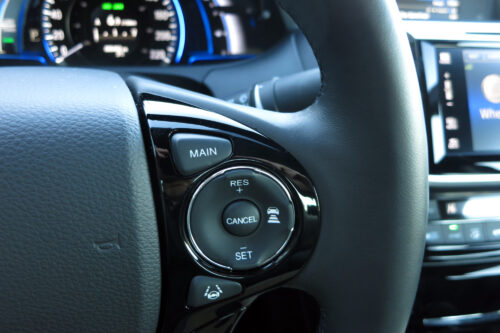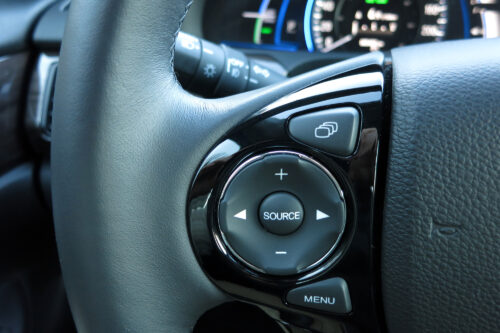A leader in both operational refinement and fuel-efficiency
Unless one’s wallet is Tesla-worthy, going electric in a large four-door sedan means settling for a hybrid vehicle, of which there are multiple to choose from; the Chevrolet Malibu, Ford Fusion, Hyundai Sonata, and Toyota Camry come readily to mind.
But what about Honda’s Accord?
Prior to 2017, the Accord Hybrid was not a particularly popular choice, possibly due to its hybrid-lite technology, which didn’t produce the most economical results. With lessons learned, Honda has leapfrogged the competition for 2017.
No doubt more than a few yen went into re-engineering the powertrain, which now stands out as a clever blending of two electric motors and a gasoline-fired internal combustion engine.
At the core powerplant is a 2.0L Atkinson-Cycle 4-cylinder engine augmented by an AC synchronous motor to develop a total output of 212 horsepower and 232 lb-ft of torque. While on the surface, this sounds like a typical “hybrid,” it differs from others due to its use of a second electric motor.
Without getting overly technical, one motor propels the car while the other acts as a generator driven by the gas engine to produce energy for the battery. It also harvests regenerative power during de-acceleration. Together, the two motors perform the role of a continuously-variable transmission. Think of it as a bit of mechanical magic that works remarkably well.
So well in fact, Honda claims that the 2017 Accord Hybrid is the class leader for fuel-efficiency based on National Resources Canada ratings of 4.9 and 5.1L/100km city and highway driving respectively. Impressive? You bet, but hard to achieve with typical – my typical that is – driving styles.
The best I saw in the city was 5.9L/100km, but don’t get me wrong, that’s still darn good for such a large, capable sedan falling under the administration of my “not so subtle” right foot. So let’s talk further about life behind the wheel of Honda’s most fuel-efficient vehicle.
Settling into the driver’s perch brings with it plenty of comfort and support. Nice environs all-around, built with the usual accuracy Honda is known for.
The Accord’s instrument panel houses a dual-screen setup, which Honda is also known for, and which I am known for hating. It’s my chief complaint – in fact only complaint – against this week’s tester. I may not be an automotive engineer, but I’m quite certain that one screen with an intuitive controller is enough for any car.
Honda, if you’re listening, please jettison the frustrating, dated touchscreen and return to the sensible use of knobs and instinctual switchgear for audio controls and various other vehicle settings. How am I supposed to annoy other passengers if I can’t repeatedly scroll through satellite radio stations while keeping my eyes on the road?
With the eyes directed where they should be, the Accord Hybrid delivers a most impressive motoring experience, which frankly left me wondering why anyone would bother moving up to Acura status.
Honda engineers have all but annihilated the hybrid curse of abruptly transitioning between power sources. The Accord seamlessly flows from one power source to both, and back again, with very little perceptible change. Unless under aggressive acceleration, it’s difficult to detect when the gas engine is at work and when it’s at rest.
The mechanical refinement under the aluminum hood contributes to a world of peace and harmony within the Accord’s cabin, which is greatly appreciated during these days of global turmoil.
Honda’s comforting hybrid moves smartly off-the-line, delivering strong acceleration well into the vehicle-impoundment range. Depending on road-surface quality, some torque-steer emerges under maximum thrust, but it’s not enough to create a noteworthy concern.
While the Accord Hybrid’s refinement exceeded my expectations, I was pleasantly surprised by its structural rigidity and the effectiveness of its underpinnings. The vehicle features outstanding chassis dynamics, which find a flawless balance between ride quality and handling capability.
The absorbency of the suspension, combined with a rattle and thump-free cabin, had me looking for bumps in the road to hit rather than miss; it was that good. In fact, the Accord Hybrid’s overall level operational refinement is a strength that I have yet to experience in any other hybrid, short of a premium marque priced at more than double the $33,200 base price of the Accord Hybrid.
My tester was the fully-equipped Touring edition, which rang in at $37,300.
Whether opting for the base or Touring model, buyers will benefit from a comprehensive array of advanced safety and driver-assistance technologies, referred to as Honda Sensing, which includes: Collision Mitigation Braking System; Lane Departure Warning; Forward Collision Warning; Lane-Keeping Assist; Road Departure Mitigation; and Adaptive Cruise Control.
One small shortcoming that befalls the hybrid Accord is the loss of fold-down rear seats due to the placement of a lithium-ion battery behind the base of the rear seat. Fortunately, intrusion into trunk is minimal, leaving owners with plenty of cargo capacity.
Apart from the gimmicky dual-screen arrangement, Honda has done a remarkably good job of redesigning their Accord Hybrid. I was struck by how refined it is on the road, and how pleasant it is to drive.
2017 Honda Accord Hybrid
Trim level: Touring
Price as tested (before taxes): $37,300.00
Freight: $1,820.00
Configuration: front engine, front-wheel-drive
Powertrain: 2.0L I-4 combined with AC synchronous motor
Combined power/torque: 212 hp / 232 lb-ft
Fuel-economy ratings (L/100km): city 4.9, highway 5.1
Observed fuel-economy (L/100km): Best 5.9
Warranty (basic): 5 years / 100,000 km
Hybrid competitors: Chevrolet Malibu, Ford Fusion, Hyundai Sonata, Kia Optima, Toyota Camry
Related links:
Honda Canada
autoTRADER.ca



